So Which Foods for Glowing Skin?
Foods rich in vitamins, minerals, and antioxidants can transform your skin health and give you that coveted radiant glow. By incorporating these nutrient-dense choices into your daily diet, you can combat skin issues like dryness, dullness, and signs of aging. Discover how simple ingredients like berries, nuts, and leafy greens can enhance your skin’s appearance, making you feel more confident and vibrant. Let’s explore the top foods that will help nourish your skin from the inside out!
Table of Contents
Key Takeaways:
- Antioxidant-Rich Fruits: Foods like berries and citrus fruits help combat skin damage by neutralizing free radicals.
- Healthy Fats: Incorporating avocados and nuts into your diet provides important fatty acids that support skin hydration and elasticity.
- Hydrating Foods: Vegetables such as cucumbers and tomatoes contribute to skin moisture and provide vitamins for a healthy glow.
- Lean Proteins: Foods like salmon and chicken are vital for collagen production, helping maintain skin structure and resilience.
- Whole Grains: Consuming oatmeal and brown rice provides B vitamins, which are important for skin health and reducing inflammation.
Types of Foods for Glowing Skin
Before you launch on your journey towards achieving that dewy, radiant complexion, it’s important to understand which foods will help you achieve your skin goals. To begin with, focus on a diverse range of nutrient-dense foods that offer the vitamins, minerals, and antioxidants your skin craves. Here are some of the top categories you should consider incorporating into your diet:
- Fruits
- Vegetables
- Nuts
- Seeds
- Whole Grains
| Food Type | Benefits |
|---|---|
| Fruits | Rich in vitamins C and E for skin repair |
| Vegetables | High in antioxidants to combat free radicals |
| Nuts | Excellent source of healthy fats for hydration |
| Seeds | Packed with omega-3 fatty acids and minerals |
| Whole Grains | Provide fiber that aids in detoxification |
Fruits and Vegetables
An abundant variety of fruits and vegetables can work wonders for your skin. Fruits like berries, oranges, and papayas are packed with vitamins and antioxidants that protect your skin from damage and keep it looking fresh. Meanwhile, leafy greens such as spinach and kale are incredibly beneficial; they contain high levels of minerals and chlorophyll, which help in detoxifying and rejuvenating your skin. Learn more with 5 Best Fruits for Radiant Skin.
Incorporating a colorful plate of fruits and vegetables into your daily diet helps ensure that you are obtaining a wide spectrum of nutrients. These foods are not only low in calories but also provide hydration thanks to their high water content. Therefore, focusing on your fruit and vegetable intake can significantly contribute to your overall skin health.
Nuts and Seeds
Seeds are little powerhouses packed with nutrients that are important for achieving glowing skin. Varieties such as flaxseeds, chia seeds, and sunflower seeds are abundant in omega-3 fatty acids, which have anti-inflammatory properties beneficial for skin health. Regularly including these in your diet can help reduce inflammation and promote hydration. Explore how they help in 5 Powerful Benefits of Seeds for Skin Health.
This combination of nuts and seeds can drastically improve your skin’s appearance. Nuts like walnuts and almonds are rich in vitamin E and healthy fats, which are necessary for skin elasticity and moisture retention. Incorporating these into your meals is straightforward; you can sprinkle them on salads, blend them into smoothies, or simply enjoy them as a snack. Discover more insights in 5 Best Nuts for Healthy Skin.
After evaluating your food choices and implementing more varieties of fruits, vegetables, nuts, and seeds, your path to achieving radiant skin will be well on its way. Take that step towards nourishing your skin from within.

Key Nutrients for Healthy Skin
Some of the best ways to achieve glowing skin are through a well-balanced diet that incorporates crucial nutrients. These nutrients not only support your skin’s health but also contribute to your overall well-being. Focus on incorporating foods rich in vitamins, minerals, and antioxidants, all of which play a vital role in maintaining your skin’s natural radiance. For more insights, check out 10 Foods and Beverages for Glowing, Healthy Skin.
Vitamins and Minerals
Clearly, vitamins and minerals are fundamental to skin health. Vitamin A is crucial for skin repair and maintenance, promoting a glowing complexion. You can find it in foods like sweet potatoes and leafy greens. Vitamin C, on the other hand, is integral for collagen production, helping to keep your skin firm and youthful. Incorporate citrus fruits and berries into your diet to ensure you’re getting enough of this vital nutrient. Minerals such as zinc and selenium also play important roles; zinc aids in healing and inflammation control, while selenium combats oxidative damage. Discover more in 5 Best Vitamins for Radiant Skin.
Antioxidants
Vitamins and minerals are not the only players in the quest for healthy skin; antioxidants also hold significant importance. These powerful compounds protect your skin cells from damage caused by free radicals, helping to stave off signs of aging and maintain your skin’s elasticity. Foods rich in antioxidants, such as dark chocolate, nuts, and colorful vegetables, can significantly enhance your skin’s appearance. Explore their impact in 5 Powerful Antioxidants for Youthful Skin.
The availability of antioxidants in your diet offers profound benefits for your skin’s health. By fighting against free radicals, antioxidants not only promote an even skin tone but also improve hydration and texture. Include foods like berries, green tea, and even artichokes in your meals to bolster your skin’s defenses and support its lasting glow. Learn about effective dietary strategies in 5 Antioxidant-Rich Foods for Glowing Skin.
Making these dietary choices can lay the foundation for achieving that radiant complexion you desire while helping to shield your skin from potential harm.

Tips for Incorporating Skin-Glowing Foods
Not all foods are created equal when it comes to attaining a radiant complexion. To truly harness the power of skin-glowing foods, consider the following tips:
- Incorporate a variety of colorful fruits and vegetables into your diet.
- Choose healthy fats, such as avocados and nuts, to enhance nutrient absorption.
- Prioritize whole grains over processed foods to give your skin the fiber it needs.
- Make smoothies or juices to easily blend numerous skin-boosting ingredients.
- Snack on foods rich in antioxidants, such as berries, to maintain healthy skin throughout the day.
The key is to keep your meals vibrant and packed with nutrients that promote glowing skin.
Meal Planning
If you want to make skin-glowing foods a regular part of your diet, meal planning can be a game-changer. By setting aside a little time each week to plan your meals, you can ensure that you incorporate a balance of vitamins, minerals, and antioxidants aimed at enhancing your skin’s radiance. Focus on adding various sources of omega-3 fatty acids and vitamins A, C, and E in your recipes, as these are imperative for skin health. Learn more in 5 Best Meal Plans for Radiant Skin.
In addition, try prepping some of your imperative ingredients in advance, such as washing and chopping fruits and vegetables or cooking whole grains. This will make it easier for you to whip up quick yet nourishing meals that cater to your skin’s needs, helping to seamlessly incorporate these skin-loving foods into your daily routine.
Hydration Strategies
To truly support glowing skin, you must also prioritize hydration. Often, we overlook the power of drinking enough water and consuming hydrating foods that can drastically improve your skin’s appearance. Aim to consume the recommended amount of water daily by incorporating foods with high water content such as cucumbers, watermelon, and oranges. Discover insights in 5 Easy Hydration Tips for Glowing Skin.
Skin-glowing hydration strategies go beyond just drinking more water; they include recognizing your body’s needs for moisture and ensuring you’re properly nourished from the inside out. By maintaining a daily intake of fluids and hydrating foods, you’ll notice a shift in your skin’s overall texture and tone. Your body needs sufficient hydration to flush out toxins and support cellular regeneration, resulting in a vibrant and youthful glow. Dive deeper into 5 Hydration Foods You Need for Radiant Skin.
Step-by-Step Guide to a Skin-Friendly Diet
After understanding the relationship between your diet and skin health, it’s time to put that knowledge into action. Adopting a skin-friendly diet involves incorporating a variety of nutrients that contribute to a radiant complexion. Below is a simplified table outlining necessary nutrients, their benefits, and food sources that you can add to your meals.
| Nutrient | Food Sources |
|---|---|
| Vitamin C | Citrus fruits, strawberries, bell peppers, broccoli |
| Omega-3 Fatty Acids | Fatty fish, walnuts, flaxseeds, chia seeds |
| Antioxidants | Blueberries, dark chocolate, artichokes, green tea |
| Zinc | Nuts, seeds, beans, whole grains |
| Water | Hydration from water, herbal teas, fruits and vegetables |
Daily Meal Ideas
On a daily basis, structure your meals to balance your nutritional intake and maximize your skin benefits. Think about starting your day with a smoothie made from spinach, banana, and a tablespoon of flaxseeds. For lunch, consider a quinoa salad packed with tomatoes, cucumbers, and a drizzle of olive oil. For dinner, grill salmon rich in omega-3s alongside steamed broccoli and sweet potatoes for their vitamin A content. Discover more in 5 Best Meals for Healthy Skin.
Furthermore, ensure that you’re including a variety of colors on your plate; the more vibrant your meals appear, the more likely they are to be packed with the vitamins and minerals your skin craves. Try to always engage in mindful eating, reflecting on how each nutrient contributes to your overall health and well-being.
Snack Suggestions
Any time you feel peckish, reach for snacks that not only satisfy your cravings but also deliver skin-loving nutrients. Instead of reaching for processed snacks, choose options like a handful of almonds or a small bowl of mixed berries. You might also grab a piece of dark chocolate, which is rich in antioxidants and can help combat free radicals. Read 5 Healthy Snacks for Glowing Skin for inspiration.
Opting for a healthy snack is an excellent way to maintain your energy levels while also nourishing your skin. For instance, you can dip raw carrots or cucumber slices into a homemade hummus for a nutrient-rich option that supports overall skin health.
Incorporating snacks like carrot sticks with hummus or sliced apple with almond butter not only provides necessary nutrients but also keeps you from feeling deprived. This approach allows you to enjoy tasty treats while supporting your skin’s vitality and glow. Avoid sugary snacks that spike your blood sugar; instead, make a habit of choosing wholesome alternatives. Check 5 Worst Snacks That Harm Skin to know what to avoid.

Factors Affecting Skin Health
Despite the many creams and serums available on the market, the health of your skin is influenced by a multitude of factors. These include but are not limited to genetics, diet, hydration, stress levels, and environmental conditions. The way you treat your body ultimately reflects on your skin. Incorporating the right foods can enhance your skin’s appearance, while neglecting your overall health can lead to visible signs of aging and skin issues. Here are some key factors to consider:
- Diet
- Hydration
- Stress Levels
- Sleep Patterns
- Sun Exposure
You can learn more about What To Eat And Drink For Healthy Skin, which emphasizes the importance of a balanced diet in achieving healthy skin. The choices you make every day can either contribute to your skin’s vitality or detract from it.
Lifestyle Choices
Clearly, your lifestyle choices play an integral role in how your skin appears. Engaging in regular physical activity, maintaining a well-balanced diet, and managing stress levels can all lead to improved skin health. It’s important to focus on incorporating foods rich in vitamins A, C, and E, as well as omega-3 fatty acids, to support your skin’s resilience. For more insight, explore 5 Healthy Habits for Glowing Skin.
Additionally, not only what you eat matters; ensuring you get adequate sleep is also fundamental for rejuvenating your skin. Furthermore, habits such as smoking and excessive alcohol consumption can adversely affect your skin’s texture and overall appearance. The choices you make each day about your well-being will ultimately manifest in how your skin looks and feels. Prioritizing a healthy lifestyle can bring about remarkable changes. Learn more in 5 Habits to Avoid for Better Skin.
Environmental Influences
Assuming you live in a bustling urban area or a climate that’s less than ideal, environmental factors can significantly impact your skin health. Pollution, UV exposure, and harsh weather conditions can all lead to premature aging, dryness, and other skin problems. Protecting your skin from these external threats is imperative if you want to maintain a radiant complexion. Using proper sunscreen, avoiding prolonged exposure to pollution, and incorporating products that shield your skin can offer protection. Check out 5 Essential Tips to Protect Skin from Pollution.
The impact of environmental influences also extends to the presence of free radicals in the air. These harmful particles can lead to oxidative stress, significantly damaging your skin’s cellular integrity. By using skincare products rich in antioxidants and anti-inflammatory ingredients, you can counteract the negative effects of pollution. Furthermore, embracing a healthy diet that includes fruits and vegetables can fortify your skin’s defenses against these external aggressors, promoting a brighter and more glowing complexion.
Pros and Cons of Different Diets
Once again, understanding the varying diets available can help you make informed choices for your skin health. While every diet has its unique benefits, it can also come with its drawbacks. The following table outlines some of the significant pros and cons associated with different dietary approaches.
| Diet Type | Pros | Cons |
|---|---|---|
| Plant-Based Diet | Nutrient-rich, high in antioxidants | May lack imperative nutrients like Vitamin B12 |
| High-Protein Diet | Promotes muscle growth and repair | Can be hard on the kidneys |
| Ketogenic Diet | Promotes weight loss | May lead to nutrient deficiencies |
| Mediterranean Diet | Heart-healthy, anti-inflammatory | Can be expensive due to seafood and fresh produce |
| Intermittent Fasting | May enhance metabolic health | Can lead to overeating during feeding periods |
Plant-Based Diets
Cons of a plant-based diet include the potential for nutrient deficiencies. As you transition to a plant-based lifestyle, you may find it challenging to attain adequate levels of important nutrients such as Vitamin B12, iron, and omega-3 fatty acids. These nutrients play a significant role in maintaining skin health, and their absence can result in dryness or other skin-related issues. For more information, check out 5 Common Mistakes to Avoid on a Plant-Based Diet.
However, the benefits of a plant-based diet can outweigh the downsides if approached correctly. Rich in vitamins, minerals, and antioxidants, this diet can enhance your skin’s natural glow. Foods like fruits, vegetables, nuts, and seeds are not only nourishing but also protect your skin from oxidative stress, leading to a healthier complexion. By ensuring you’re mindful of nutrient sources, you can reap the rewards of a plant-focused lifestyle. Dive deeper into the benefits with 5 Best Foods for a Glowing Complexion.
High-Protein Diets
Even though high-protein diets offer benefits like enhanced muscle growth and repair, they come with their own set of disadvantages. Consistently consuming high levels of protein can place additional stress on your kidneys, especially if you have preexisting conditions or consume excessive amounts over time. It’s important to be aware that while protein can contribute to skin elasticity and firmness, too much of it may not be sustainable or healthy. Learn more in 5 Negative Effects of Overeating Protein.
Understanding the impact of a high-protein diet is imperative for your wellness journey. It can promote skin vitality when you choose lean protein sources such as fish, poultry, legumes, and plant-based proteins. However, be cautious of relying too much on processed protein powders or red meats, as they can lead to an imbalance in your overall nutrition. Balancing your protein intake with plenty of fruits and vegetables will ensure that your skin not only stays radiant but also thrives in the long run.
Final Words
With these considerations, it is crucial for you to understand that the foods you consume play a significant role in the health and appearance of your skin. Incorporating a balanced diet rich in vitamins, antioxidants, and healthy fats can boost your skin’s radiance. Foods like fruits, vegetables, nuts, and fatty fish not only nourish your body but can also provide the hydration and nutrients necessary for that coveted glow. By making mindful choices and prioritizing skin-friendly foods, you actively invest in your skin’s vitality.
Aiming for a variety of nutrient-dense foods can enhance your overall well-being, directly affecting the quality of your skin. Each bite you take is an opportunity to nourish your body from the inside out. Cultivating these healthy eating habits not only supports your skin’s appearance but also contributes to your overall health. Embrace this knowledge, experiment with different skin-boosting foods, and watch as your skin transforms into the glowing canvas you desire.
FAQ:
Q: What are some foods that can help promote glowing skin?
A: To achieve glowing skin, consider incorporating foods rich in antioxidants, vitamins, and healthy fats into your diet. Some excellent choices include avocados, which provide healthy fats and vitamin E, berries that are packed with antioxidants, fatty fish such as salmon, which is high in omega-3 fatty acids, nuts, especially walnuts for their zinc content, and leafy greens, like spinach, which are rich in vitamins A and C.
Q: How do fruits and vegetables affect skin health?
A: Fruits and vegetables are vital for skin health due to their high content of vitamins, minerals, and antioxidants. Vitamin C found in citrus fruits helps with collagen production, while beta-carotene in carrots can improve skin tone and texture. Leafy greens are also known to support skin hydration, and the water content in fruits like watermelon can keep the skin moisturized and plump.
Q: Can consuming nuts and seeds really enhance skin appearance?
A: Yes, nuts and seeds can significantly enhance skin appearance. They are rich in healthy fats, vitamin E, and other nutrients that promote skin elasticity and hydration. For example, almonds are a great source of vitamin E which can protect the skin from oxidative stress, while chia seeds and flaxseeds provide omega-3 fatty acids that help maintain skin’s moisture barrier.
Q: Is drinking water important for glowing skin?
A: Drinking water is vital for maintaining healthy skin. Adequate hydration helps to keep skin cells functioning correctly, flushes out toxins, and supports overall skin elasticity. When you’re well-hydrated, your skin appears more vibrant and less prone to dryness or flakiness. Aim to drink plenty of fluids throughout the day, and consider incorporating hydrating foods like cucumbers and oranges into your diet.
Q: How does a balanced diet contribute to skin radiance?
A: A balanced diet contributes to skin radiance by providing vital nutrients that the body requires for optimal skin health. Consuming a variety of whole foods, including lean proteins, whole grains, fruits, and vegetables, ensures that your body receives the necessary vitamins, minerals, and antioxidants. This nutrition helps combat inflammation, repairs skin damage, and enhances overall skin texture and appearance, resulting in a natural glow.

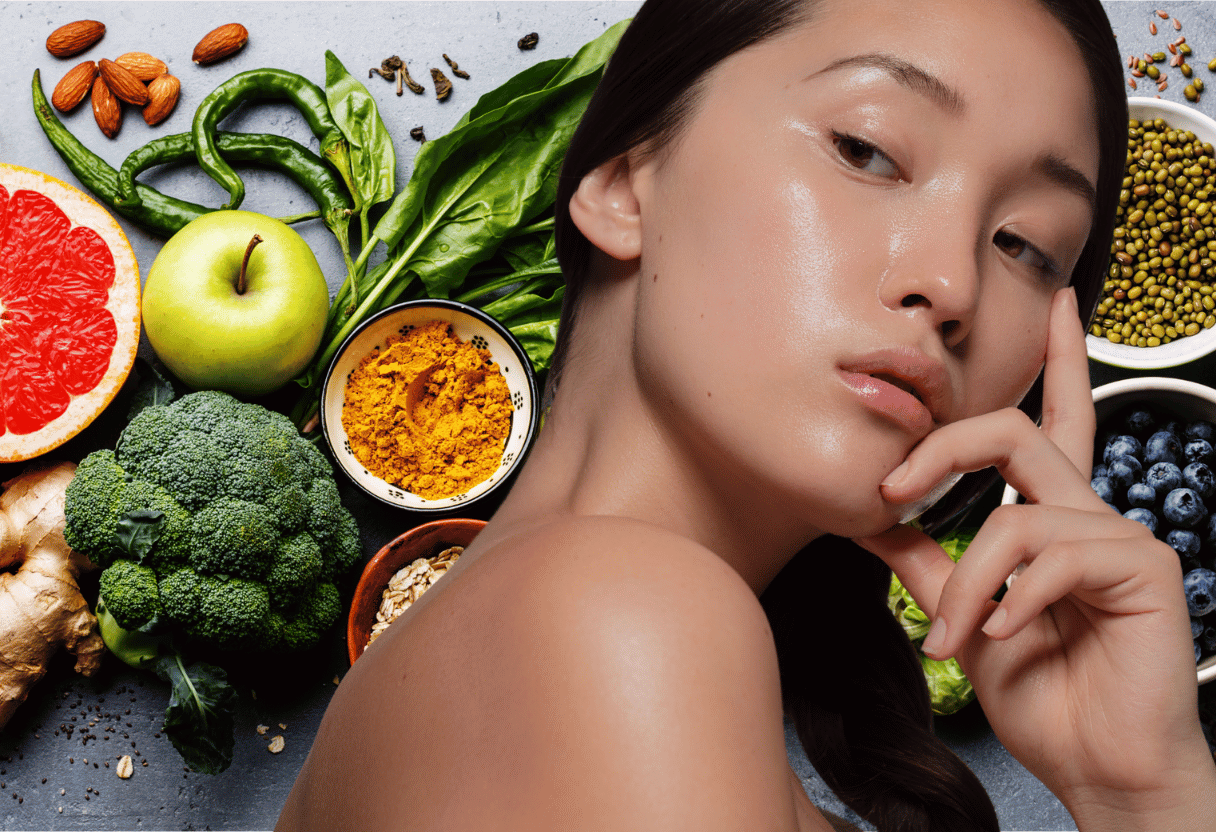


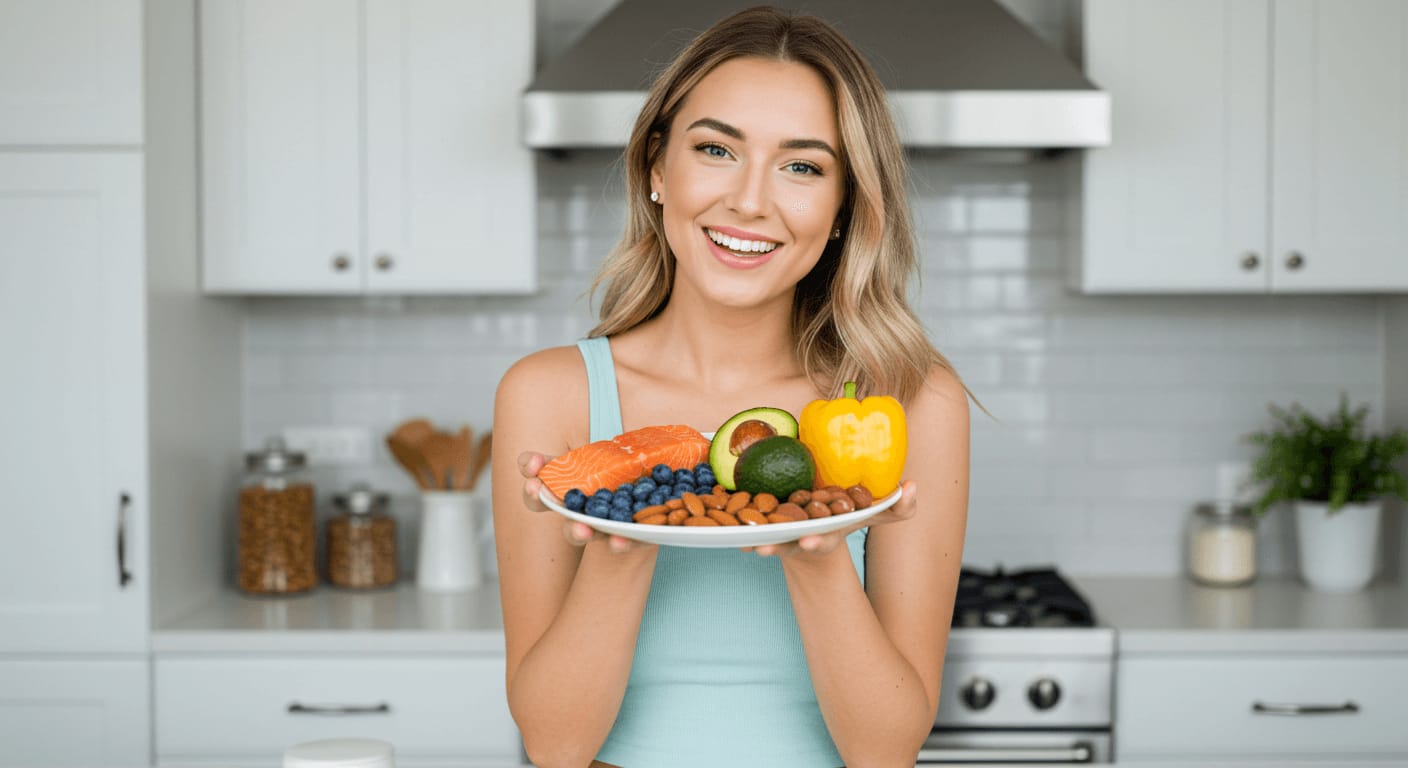

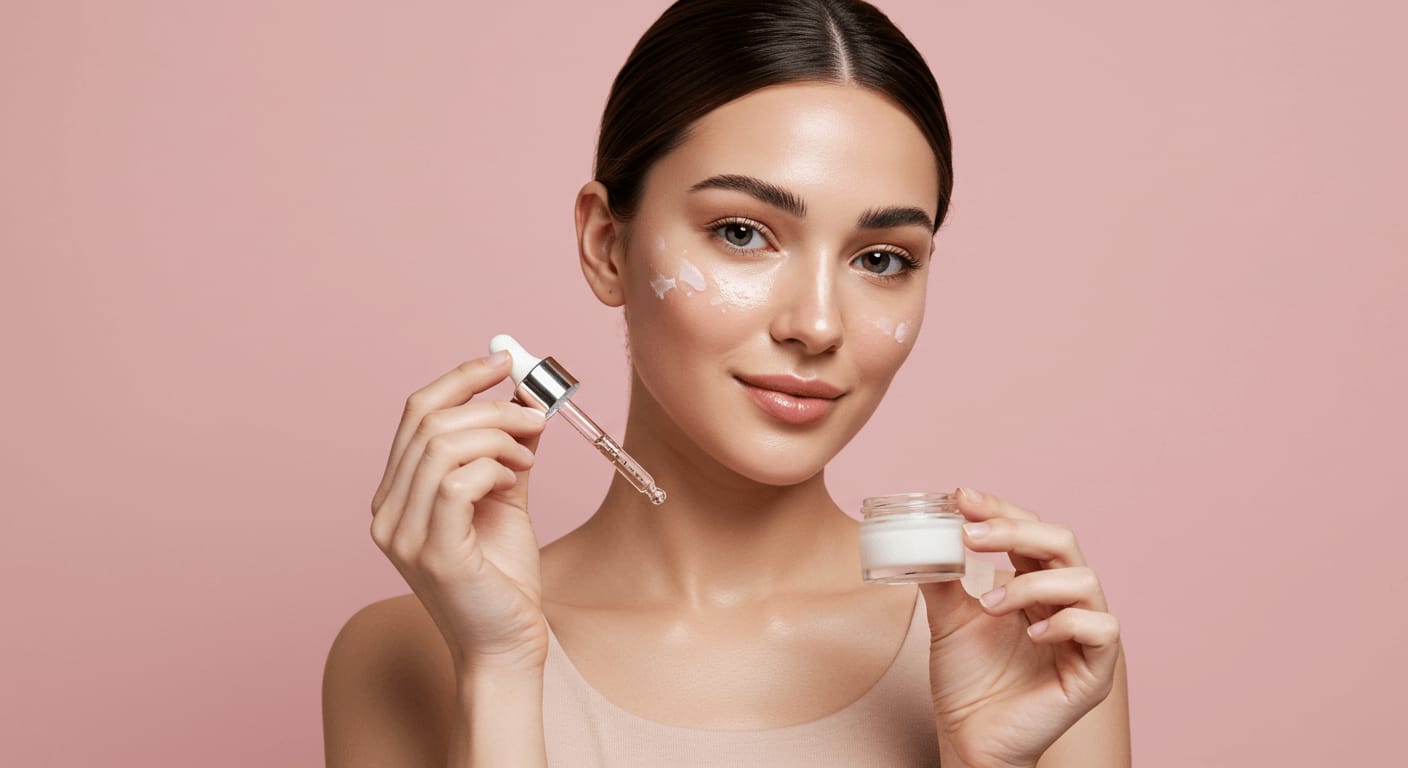






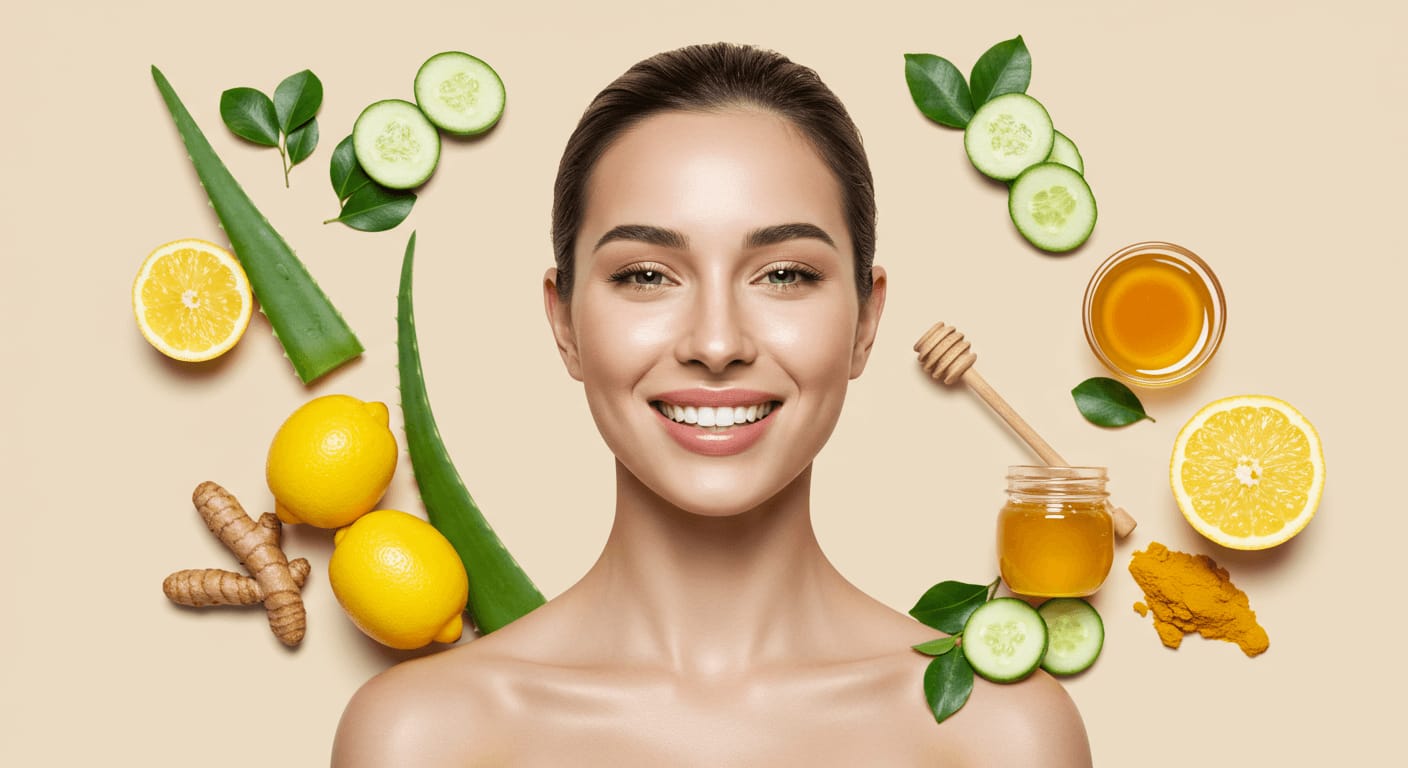

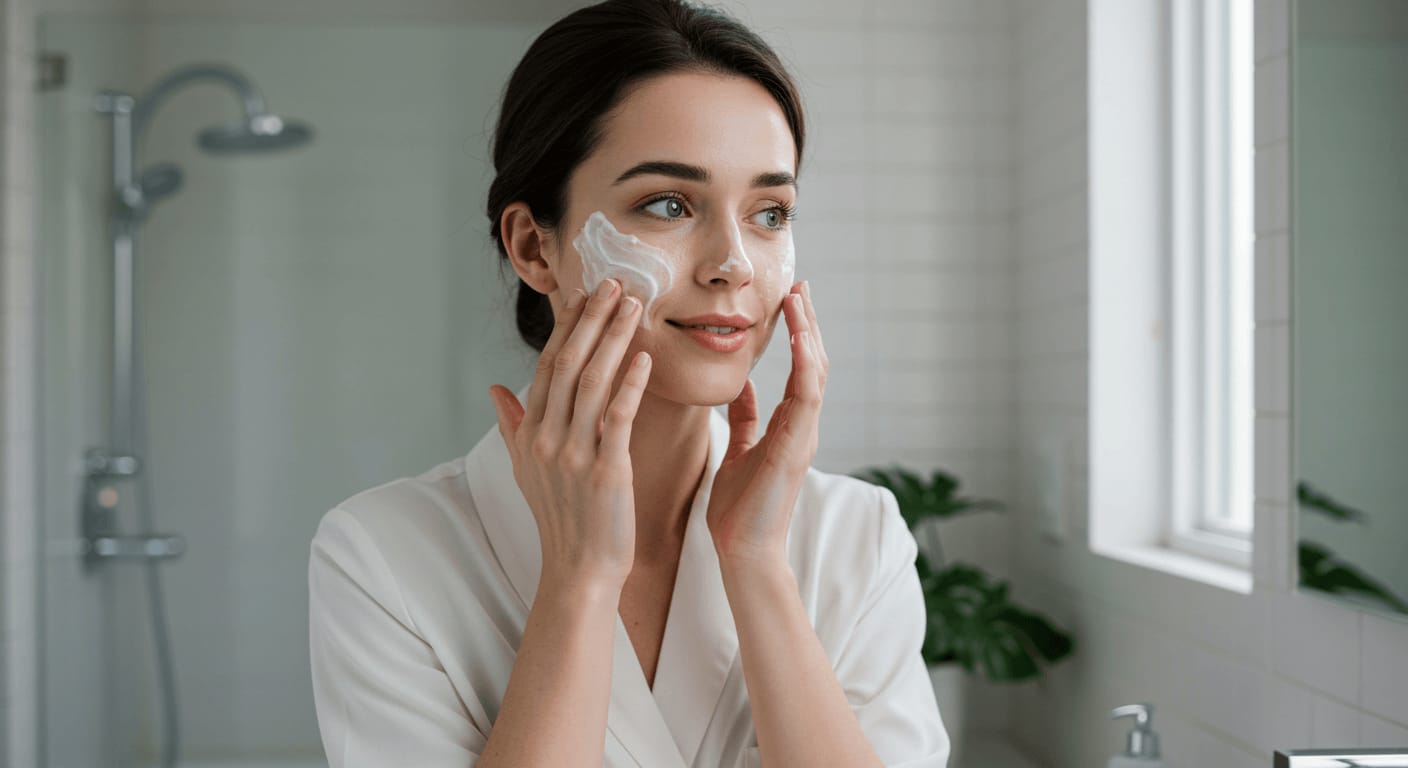








0 Comments
Trackbacks/Pingbacks